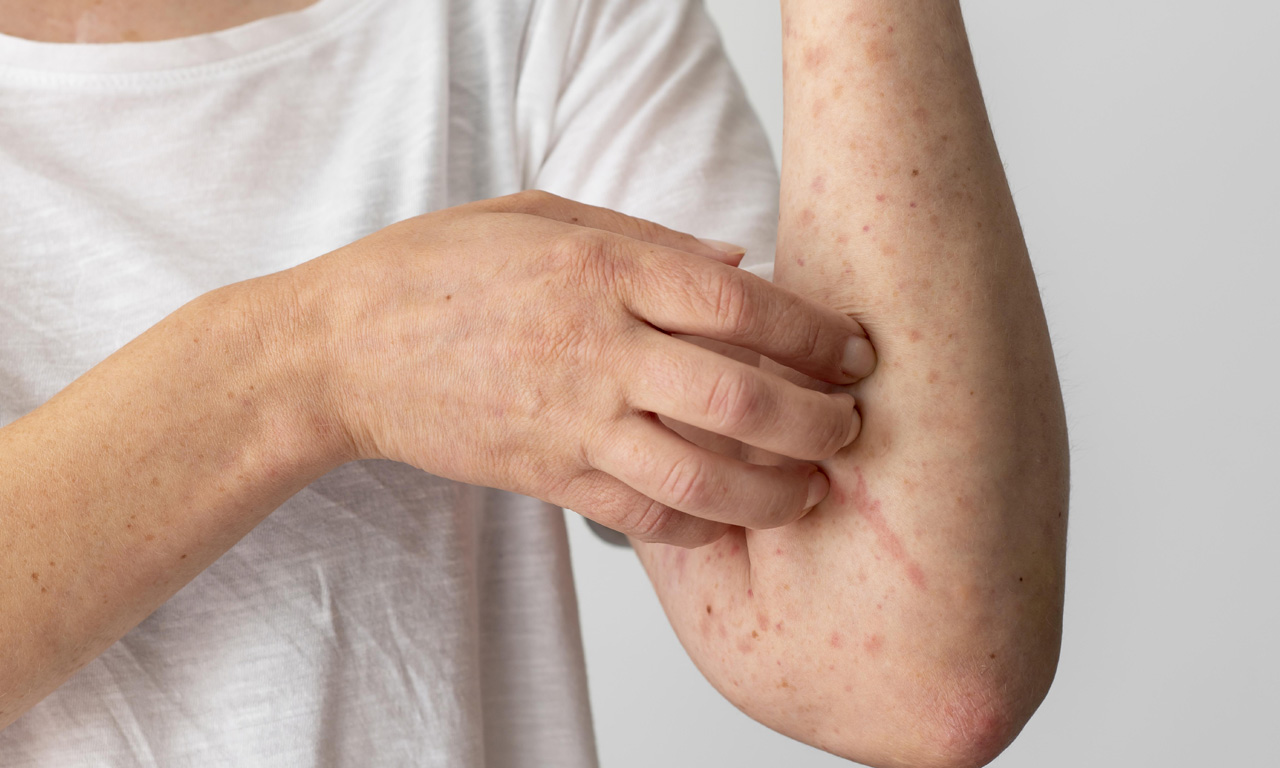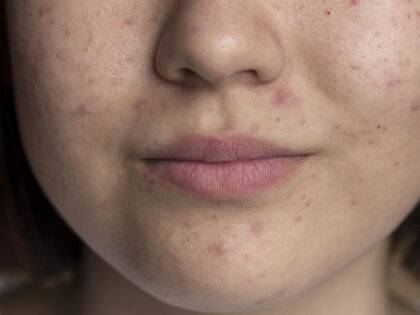How to manage eczema flares
-
admin
- Posted on

What is Eczema?
Atopic dermatitis, commonly known as Eczema, is a condition that causes inflamed, irritated, and often itchy skin. Although it is seen in infants or very young children, Eczema can appear at any age, with symptoms sometimes lasting well into adulthood. The skin’s barrier is compromised and it becomes extremely itchy. Scratching and rubbing result in a red rash that may flake, blister, or even bleed. The condition is not harmful to the skin and body and is not contagious where it can be contracted from person to person. It’s usually a genetic condition where Eczema can run among family members or can appear due to allergies or asthma.
There are multiple types of Eczema including Atopic dermatitis, Contact dermatitis or Stasis dermatitis, Hand eczema, Neurodermatitis, and Nummular eczema. These patches of dry itchy and flaky skin can appear on various parts of the body from the face, hand,
Symptoms of Eczema can range from:
- Extremely dry skin
- Thickened skin texture
- Flaky or scaly skin
- Redness
- Swelling
- Skin irritation
- Small bumps on the skin that can weep when scratched
- Discolored skin, which can be lighter or darker than the non-affected skin surrounding it
Although there is no cure for Eczema, it is easily treatable. The goal of treating Eczema flare-ups is to minimize skin irritation, treat dry and flaky skin and prevent infection. Proactive protection is key to managing eczema flares, so use this guide to manage your eczema and continue having beautiful healthy skin.
See a board-certified dermatologist
Why should you see a board-certified dermatologist? Dermatologists, especially those who are trained to treat medical skin conditions, can easily diagnose what kind of eczema you may have. As there are many different types of Eczema, practitioners can recommend appropriate over-the-counter treatments or prescribe medication that is right for your needs.
How to manage Eczema flare-ups
Eczema flare-ups can be triggered by stress, hot or cold temperature, dry conditions, certain fabrics and even certain detergents. Keeping your eczema under good control is important to minimize itch and prevent skin infections, which are more common on eczematous skin.
Protect the skin barrier with moisturizer
Eczema causes the skin barrier to break due to irritation and scratching so moisturizing the skin greatly reduces dryness and irritation. We recommend moisturizers that boost the natural moisture of the skin and help repair the skin’s barrier, like our Biotherapy moisturizer.
Look for ingredients that will soothe dry skin and protect the damaged skin barrier like:
- Tea tree oil
- oat or shea butter
- aloe
- glycerin
- hyaluronic acid
- petrolatum
- vitamin E
- humectants
- niacinamide
For more severe cases, treatments can range from antihistamines, steroid creams, and systemic corticosteroids to oral antibiotics. Although your dermatologist will recommend you the right medication for your particular type of eczema.
Minimize stress, allergies, and asthma
Prevent Eczema flare-ups from happening by minimizing triggers such as stress, allergies, and asthma attacks. Some ways to prevent eczema triggers are to avoid using extremely hot water when bathing and instead, take lukewarm baths, wear light clothes to prevent sweating which makes eczema flareups worse, and most of all avoid scratching as much as you can.






